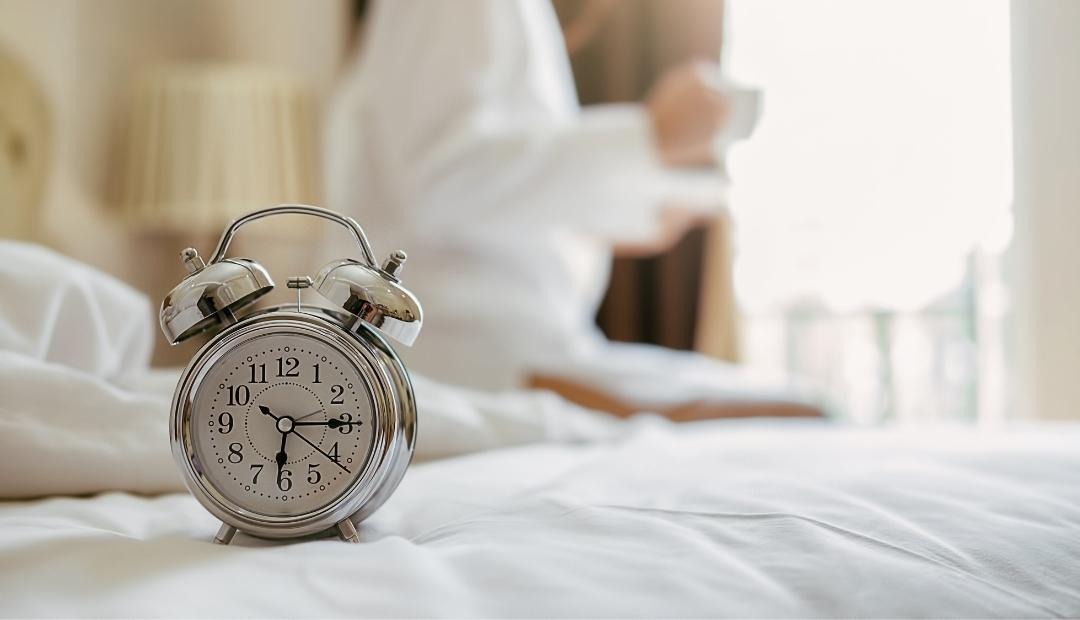Getting enough quality sleep has a direct impact on your physical health. A good night's rest supports healthy hormone production and helps protect against diseases like cancer, diabetes, and hypertension, among others.
In fact, people who get less than 7 hours of sleep per night are more likely to develop heart disease than those who get the recommended 7-8 hours.
The quality of sleep you get plays a big role in how you perform daily. Here are some tips on how to improve sleep quality.
Get Some Sunlight During The Day
Getting sunlight exposure during the day is one thing you can do to help improve your sleep quality. Sunlight exposure and darkness are two key factors that regulate your body's circadian rhythm.
Your circadian rhythm is a 24-hour internal clock that cycles between sleepiness and alertness at regular intervals. It's also known as your sleep-wake cycle. Your body regulates this cycle by responding to light and dark signals, which tell your brain when it's time to wake up and when it’s time to go to sleep.
When it gets dark outside, your body naturally produces melatonin — the hormone that makes you feel sleepy. At sunrise, the light signals your body to stop producing melatonin so you'll wake up feeling alert.
So, if you don't get enough natural light during the day, your circadian rhythm can get thrown off, which can make it harder for you to fall asleep at night.
Avoid Long Daytime Naps
Napping during the day can be a good way to catch up on sleep, but only if you do it right. Long naps or naps too close to bedtime can cause problems, especially for people with insomnia.
If you feel sleepy during the day and want to take a nap, be sure to keep your naps short. Shorter naps (10-20 minutes) are more refreshing than longer ones. A nap of 60 minutes or longer can leave you feeling groggy.
Create A Peaceful Bedroom Environment
Keep your bedroom as quiet as possible by shutting windows, doors, and vents so you don't hear any unwanted noise. If you live in a loud area, use earplugs or play white noise in the background.
The ideal bedroom is cool, dark, quiet, and comfortable. Most people can go to sleep easily if the room temperature is between 60 and 67 degrees Fahrenheit. If you don't have blackout curtains, consider wearing a sleeping mask to block light from windows.
Make Sure Your Mattress Is Comfortable
A comfortable bed is essential to getting a good night's sleep. If you wake up every morning with a stiff neck, back pain, or shoulder aches, it might be time to replace your mattress and pillows.
Some mattresses are worn out and do not provide the support they once did, while others are simply not comfortable to begin with. A mattress is an important investment and can have a big impact on your sleep quality.
Consider Taking A Melatonin Supplement
Melatonin is a hormone that regulates your sleep-wake cycle. Most of your body's melatonin is made in the pineal gland, located in the brain.
Your body's production of melatonin begins to rise when it gets dark outside and decreases during daylight hours. But if you're frequently exposed to bright light at night, this natural cycle can get disrupted, which can lead to insomnia and other sleep problems.
Supplementing with melatonin may help you fall asleep more quickly, reduce the time spent awake during the night, and improve your overall sleep quality.
If we don’t get the rest we need, it can wreak havoc on our lives. We’ll be more susceptible to illness and disease, as well as struggle to stay focused and motivated.
With a few simple habits, you can easily improve your sleep quality and reduce your risk of developing serious health problems. Hopefully, the suggestions above will help you sleep better and wake up with more energy every day.
White Rock Apartment Homes in San Antonio, TX



